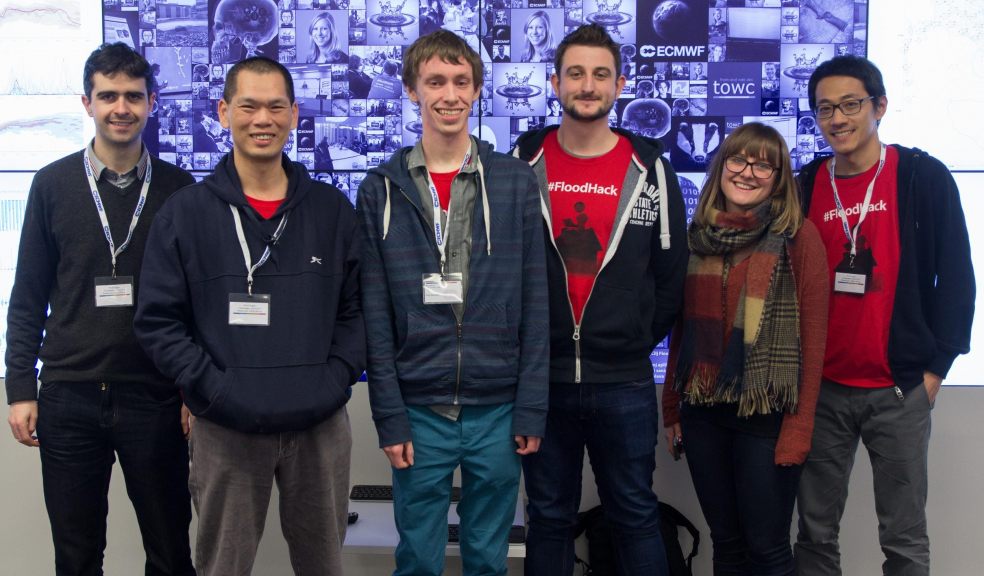
Exeter Dr helps to create flood-awareness app
A team featuring a flood expert from the University of Exeter’s Centre for Water Systems (CWS) has claimed first prize for the creation of an app that will aid global flood management and help save lives.
Dr Albert Chen, Senior Research Fellow at CWS and expert in urban flood modelling, took part in #FloodHack, an event set up by the European Centre for Medium-Range Weather Forecasts (ECMWF) in Reading with the aim of finding innovative ways to improve the
Global Flood Awareness System (GloFAS), which provides global forecasts of extreme flood events.
Forty participants from a range of backgrounds in education, computer science, physics, hydrology and geography took part in the event which was supported by the Copernicus Emergency Management Service. They formed five teams and were tasked with finding ways of making GloFAS, used as a crisis management tool by international institutes like the Red Cross and World Food Programme tool, easier and more flexible to use.
With a team of people comprising three software developers, a physicist and a hydrologist, Dr Chen helped develop LIVE (Logistic and Infrastructure Visual Evaluation) software which converts detailed flood forecasting information into a Time to Respond map, which gives decision makers an idea of how much time they need to respond to flooding.
In the afternoon of the second day of the event each team presented their results to a panel of judges which comprised a professional software developer, telecoms expert, environment and technology consultant, web technologist, and crisis manager. Judging criteria included potential for innovation, relevance and usefulness, technical merit, design, polish and "wow" factor.
Dr Chen’s team which included Laura Ludwinski, Sam Griffiths and Pal Barnard from JBA Consulting, Dr Peter Watson, a physicist from Oxford University and Dr Li-Pen Wang, a hydrologist from the University of Leuven, impressed the judges with the prototype app which will also help prioritise resources allocation to flood threat areas that need immediate attention.
“I would like to thank my talented team- mates. Each member contributed their skills to complete a number of subtasks in information collection and extraction, data processing and analysis and visualisation,” said Dr Chen. “After 27 hours of intense collaboration and countless cups of coffee and Redbull we produced an app that impressed the panel of judges because of its potential to benefit global stakeholders with different needs and its potential to inspire further apps using similar technology.”
The four other projects FloodIT, which offered refined flood information based on GloFAS to help local users understand their situation, The (flooded) Italian Job, which analysed big data to determine spatial varied flood warning thresholds for the GloFAS, Interception, which adopted GloFAS as an educational platform to raise flood awareness and GloFAQ, to identify infrastructures that are at risk of flooding.



















